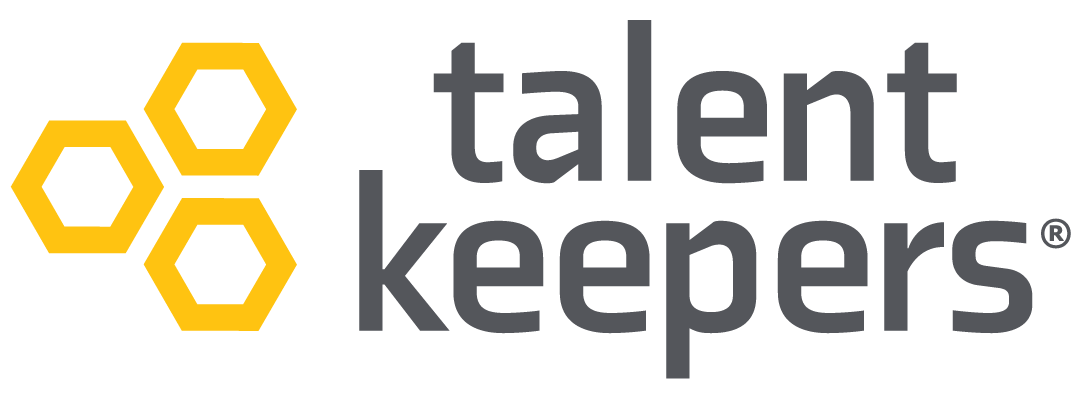Employee stay interviews are an essential tool to help improve the employee experience and employee retention at your company. To effectively conduct stay interviews, you’ll want to remember best practices. By following these proven guidelines and asking the right questions, you can maximize the benefits of stay interviews.
How To Conduct Effective Stay Interviews
An employee stay interview is a structured conversation between you (the employer or manager) and a current employee. These interviews assess employees’ engagement with their work and your organization.
Stay interviews differ from exit interviews conducted with a departing employee. Stay interviews are part of the engagement process throughout your employee’s tenure.
To conduct a stay interview effectively, follow these guidelines for a productive and supportive conversation between you and your employee.
Be Proactive
Schedule interviews with your employees in advance and put them on both calendars. Stay interviews are most effective when they’re part of regular communication, not just after there is friction or a sensitive event.
Be aware of timing. If your employee has a big deadline, don’t schedule your stay interview right before it comes due. Give them time to wrap up their project and then come to the interview without the added stress of time worries. Further, don’t combine stay interviews with a performance review; this causes a conflict of purpose for the interview.
Identify Top Performers
All tenured employees should have an interview; only interviewing your top-performing team can lead to friction with your other employees. However, identify your top-performing team members and begin your stay interviews with this group.
This will help you understand the “why” of why they’re happy and staying with your company – or why they’re unhappy. Starting with top performers is a high priority when your company introduces the stay interview process.
Set the Proper Expectations
Keep your interviews to 20-30 minutes in length.
Prepare your employees for the stay interview by letting them know what will be discussed. This doesn’t mean you should send them a list of the stay interview questions you will ask.
That is not recommended. Instead, let them know what type of interview it will be and why you’re performing it. This will help the employee prepare and facilitate a more productive conversation for you both.
Make it Comfortable
The more comfortable your interview setting, the more likely your employee will share and engage in an open and productive dialogue. Remember, the stay interview is a conversation, first and foremost. A safe and comfortable space may give your employees greater confidence in providing honest feedback.
Try to hold your stay interview in a less formal and more neutral environment than your office. Consider meeting in their office, a conference room, or over coffee or lunch near the office.
Show You Value the Employee
Set the tone for the interview by expressing gratitude for your employee’s work for your company. Let them know they are valued employees and their contributions are appreciated.
Doing this will reinforce that this is meant to be a positive experience for both of you. It may also relieve any undue pressure they might be feeling, especially if this is their first time having a stay interview.
Ask Constructive Stay Interview Questions
When considering staying interview questions to ask your employees, remember that they should be designed to make employees feel comfortable offering candid feedback. Open-ended questions are strongly suggested, as they provide an opportunity for employee feedback on matters that you may not have been aware of.
Make sure that your employee feels valued and heard when they respond. This is a prime driver for employee engagement and helps to build trust in the manager-employee relationship.
Practice Active Listening
Active listening is a vital part of conducting a stay interview. Be fully present throughout the discussion. Practice good eye contact, and use (and notice) non-verbal cues. Open-ended questions allow you to reflect on something they said.
For example, ask follow-up questions such as, “Can you tell me a bit more about that?” or “What do you think is the best path moving forward?”
Above all, be patient and withhold judgment. Your role here is to use stay interviews to improve engagement and retention, which won’t happen if your employee feels that you aren’t genuinely interested in hearing what they say.
Review Feedback and Follow-Up
After the stay interviews are conducted, take time to review and analyze what was said. Identify trends that may become evident company-wide or with a single employee over time. Follow up with your employees after their stay interview. This will let them know that they were heard and that you, too, are engaged in the process with them.
Let your employees know that their feedback will be used to make positive changes in the company. Action informed by stay interviews and communicated with employees will encourage trust and open communication between you and your employees.
What Are The Benefits Of Conducting Stay Interviews?
The benefits of conducting employee stay interviews apply to you (the employer or manager) and your employees.
Many organizations and human resources departments use them to improve employee retention and create a more positive company culture. The interviews help them to learn what makes their employees more satisfied and interested in enhancing the company.
Your interviews can be a way to gauge if your employees need a better work-life balance. Recognizing burnout and taking action to support your employees in finding a better balance is highly prized by today’s workforce.
Stay interviews can also give you insights into the motivators of your top talent: what they desire in terms of leadership qualities, career aspirations, recognition or rewards, or engagement needs.
Most importantly, holding stay interviews at least once a quarter can help you build better, more open communication channels within your company while establishing a solid trust foundation between leadership and employees.
How To Ask Effective Stay Interview Questions
As you create your list of questions for stay interviews, keep in mind that the goal of the discussion is to help team members connect and commit to your organization. So, you want to learn what motivates them and what obstacles might stand in their way of being highly engaged.
- Career And Job Goals: Once leaders know what’s most important to their team members, they can work on developing that as part of their career growth plan. Consider asking what they like about their role or what they want to see changed.
- Communication Preferences: Understand how an employee prefers to be engaged. Whether in person, emails, meetings, or other ways will guide a leader to build a stronger relationship.
- What Employees Look For In A Leader: Leaders should learn which talents are most important to each team member so they can incorporate those behaviors into how they work with them.
- Recognition Preferences: Excellent work should not go unacknowledged. Please take the opportunity to learn from each other and celebrate employee recognition on their terms. While one employee may appreciate a company-wide email recognizing a big success, another may prefer a more private celebration of their efforts.
Clear Connections by Talent Keepers is a stay interview solution for organizations to use during onboarding and for engaging existing team members. Our proven, award-winning four-step process gives you the support needed to implement stay interviews successfully.
An online employee survey, e-learning modules for leadership training, a 1:1 meeting guide, and an online action plan provide end-to-end tools to make your stay interviews effective and help you reach your company’s goals.
Overcoming Challenges During Stay Interviews
There are times when your conversation may bring up sensitive topics, or your employee may express skepticism about the transparency or confidentiality of the process. These concerns are valid and should be met with honesty and support.
You should approach these conversations with support and empathy if sensitive issues arise during the interview. Provide solutions and resources if appropriate and within the scope of your position.
If your employee expresses concern about the stay interview process, reassure them that these conversations are focused on improving their employee experience. You won’t use the information or feedback they offer to initiate anything other than positive action promoting a healthy workplace environment.
Remind them that the discussion is confidential and encourage them to be open and transparent – as will you.
Frequently Asked Questions
Conducting stay interviews can help decrease employee turnover and help you learn what drives employee engagement.
Is a stay interview the same as a pulse interview?
No. Pulse interviews are company-wide surveys that typically focus on trends within the organization. A stay interview is a 1:1 conversation between a manager and an employee. It is focused on improving the employees’ experiences with the organization and learning how to motivate and engage them.
Who should conduct a stay interview?
A stay interview should be conducted between an employee and their manager/supervisor.
What are the elements of a stay interview?
A stay interview should focus on the employee’s desires regarding leadership qualities, career aspirations, recognition or rewards preferences, and engagement needs.
How do you invite an employee to a stay interview?
Schedule the interview in advance and let the employee know it is on the calendar. You can send them an email, a calendar invite, or speak to them personally. Do not plan the interview when they have a significant work project deadline.
How do you persuade employees to stay with the company?
Finding ways to meet your employee’s needs (as expressed during a stay interview) is a great way to persuade them to stay with your company. Building trust with them by listening to their needs, committing to follow-up action, and seeing it through will help you retain top talent.







